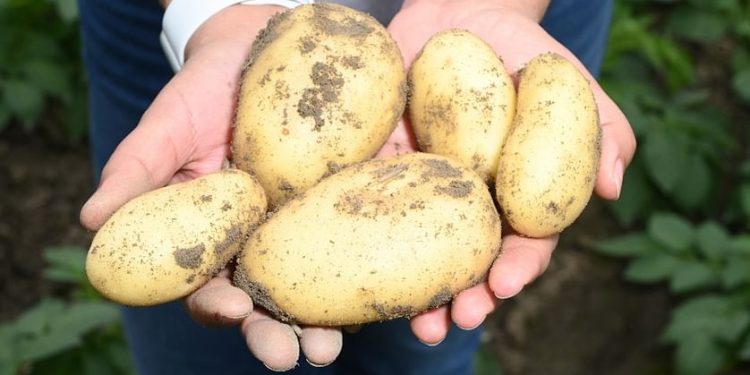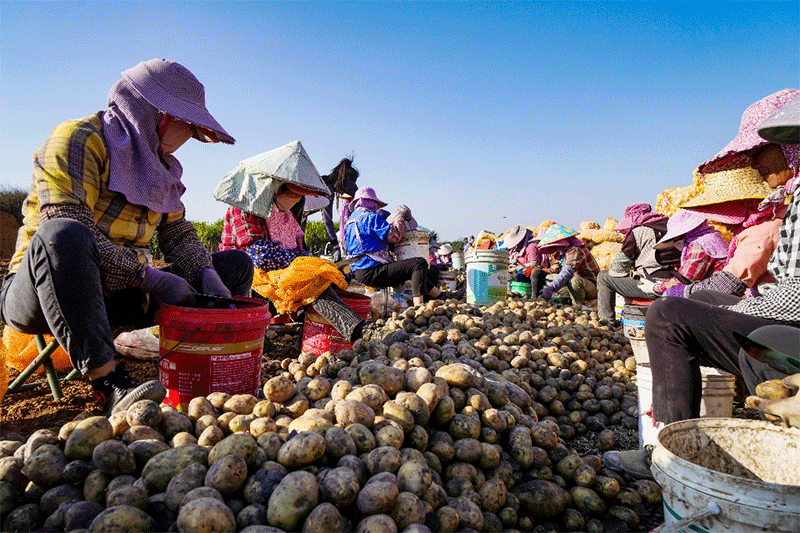#Potatofarming #Climatechange #Agriculture #Resistantvarieties #Sustainableagriculture #UKagriculture #Cropinnovation #Foodsecurity
The UK potato growing landscape is undergoing significant changes as climate change exacerbates the challenges faced by both growers and suppliers. As floods and droughts have become more frequent over the past six years, traditional varieties such as Maris Piper, King Edwards and Maris Pere are becoming increasingly difficult to maintain.
According to Paddy Graham-Jones, potato purchasing manager at Albert Bartlett, the financial risks associated with growing these varieties are significant. The need for intensive water use to peel Maris Piper before packaging increases production costs, making any crop shortages potentially devastating to growers’ profitability.
In response to these challenges, Albert Bartlett’s team of agronomists is leading efforts to identify alternative varieties better suited to a changing climate. The focus is on varieties that not only taste good, but also require fewer resources, such as water and fertilizer, while demonstrating resistance to extreme weather conditions.
The economic impact of these problems caused by climate change is evident in the sharp rise in potato prices at major retailers. Analysis by industry magazine The Grocer shows prices for a 2kg bag of Maris Piper potatoes will rise sharply in early 2024, raising concerns about availability and stability of supply.
Tim Rooke, chairman of the potato policy group of the National Farmers Union (NFU), attributes the root cause of these price increases to the 2022 summer drought, which led to lower potato yields and depleted potato stocks. Subsequent weather problems, including planting delays and harvest disruptions, further aggravated the situation, leading to a fragile balance between supply and demand.
Addressing these challenges requires a multifaceted approach, as NFU President Minette Butters emphasized. Calls for improved water security and investment in on-farm water resources highlight the need for proactive measures to mitigate the impact of climate change on potato production.
However, despite these challenges, there is optimism about the future. Martin Emmett, NFU Chairman of Horticulture and Potatoes, highlights the importance of investing in resilient plant breeding programs to create varieties that can withstand changing climate conditions. However, Brexit-related seed supply restrictions are creating further barriers to innovation, highlighting the urgency of securing seed deals with European partners.
The search for resistant potato varieties highlights the urgent need for collaborative action among farmers, suppliers, policy makers and researchers. Through innovation and adaptation, the UK potato industry can weather the storm of climate change and ensure a sustainable future for future generations.







